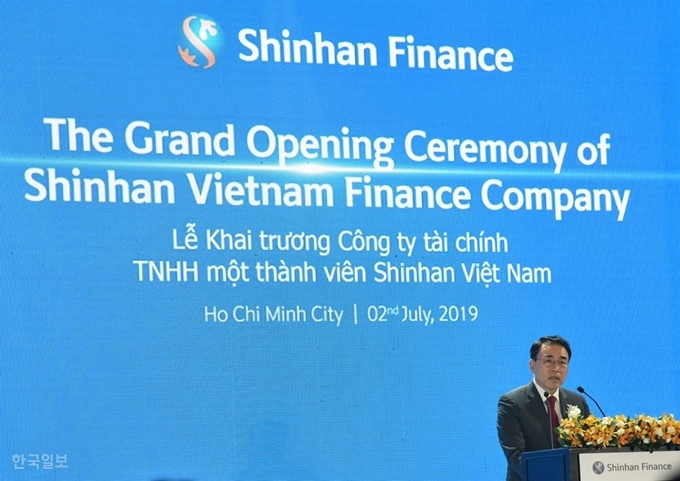South Korean credit card companies have recently been tapping into and expanding their business in Vietnam, eyeing the Southeast Asian country’s growing economy while seeking to diversify due to a sluggish domestic market.
The credit card unit of Hyundai Motor Group, Hyundai Card, announced last month that it has signed a deal worth 49 billion won ($41.9 million) to acquire a 50 percent stake in Vietnamese retail bank Finance Company Limited for Community.
FCCOM is a wholly-owned subsidiary of Vietnam Maritime Commercial Joint Stock Bank, which specializes in personal loans.
 |
(Yonhap) |
After the deal is wrapped up in the first quarter of 2020, FCCOM will operate as a joint venture between Hyundai Card and MSB.
The move not only marks the card issuer’s first step into the Vietnamese market, but its first overseas expansion as well.
Meanwhile, Lotte Group’s credit card unit, Lotte Card, has been building a platform for business in the Vietnamese market for a decade after opening an office in the ASEAN member state in 2009.
But the card issuer started gaining momentum there last year with the launch of Lotte Finance Vietnam in December after acquiring a 100 percent stake in Techcom Finance, a subsidiary of one of the country’s five major banks, Vietnam Technological and Commercial Joint Stock Bank, more widely known as Techcombank.
It then kicked-off its credit card service by introducing two cards to the market, making it the first South Korean credit card firm to provide services there.
Shinhan Card, Korea’s largest card issuer by credit card transactions, established its subsidiary Shinhan Vietnam Finance in July, more than a year after acquiring a 100 percent stake in Prudential Vietnam Finance Co. PVFC, launched in 2006, was the Vietnamese unit of the UK-based insurance firm Prudential Plc.
The credit card unit of Shinhan Financial Group has been expanding its business in Vietnam at a fast rate, cooperating with its sister commercial lender Shinhan Bank and its 36 branches across the nation.
The Korean credit industry has suffered losses in recent months, due to the government’s decision to cut card transaction fees for small businesses in November last year. A slowdown in exports of Asia’s fourth-largest economy and overall economic growth contributed to the losses as well.
Hyundai Card highlighted Vietnam’s expanding personal loan market, which has been growing nearly 60 percent annually, and increasing demand for credit cards as key reasons to dive into the market. The number of credit card users have jumped at least 27 percent on-year to some 7.4 million in 2018, according to the firm.
“Many South Korean financial holding companies want to enter the ASEAN market with their commercial lending business, but there are too many government restrictions -- card issuers face less hurdles diving into the market,” said Kim In, an analyst at Eugene Investment & Securities.
“Local card issuers also feel like they have easier access to data related to user trends and tendencies in ASEAN nations,” he added.
By Jung Min-kyung (
mkjung@heraldcorp.com)








